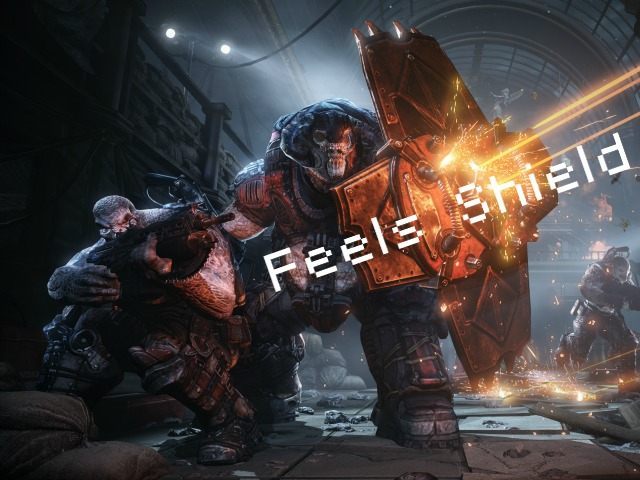Over the past few months, we’ve witnessed the consequences of so-called “safe spaces” on campus, with vicious identity politics, rampant censorship, and jackbooted intolerance spreading like a virus. So of course, the social justice warriors of video games think they’re a great idea.
In a joyless screed on Destructoid, self-proclaimed “bi gaymer” and “dinosexual” Jed Whitaker argues that online gamers in particular need more options to protect themselves from bad experiences. Players need the ability to cocoon themselves off from others, argues Whitaker, otherwise they could be a victim of serious online harassment.
Readers may remember Whitaker from his misogynist rant during a stream of Plants vs. Zombies, a video which he later tried to wipe from the internet with copyright claims.
In the disturbing 7-minute stream, Whitaker demonstrates his progressive values with repeated boasts about “raping cunts” and “faggots.” He then says that he “loves black people,” but quickly insists that he’s just joking and is not a racist. Elsewhere in the stream, Whitaker’s feminism is on display: “f**ing women, they’re only good for two things. F**ing, and being annoying, am I right?”
Presumably, Whitaker would be banned from his own safe space, were it ever set up. But, beyond Whitaker himself, what else would be disallowed? Let’s find out.
Whitaker identifies a number of reprehensible, emotionally damaging acts of video game terrorism that players need protection from. One of these is emote spamming:
If you’ve ever played Hearthstone, you’re probably familiar with its emote system. Instead of being able to directly message your opponents during matches you can click on your hero and select pre-made emotes that include: greetings, well played, thanks, oops, threaten, and sorry. At first glance, these emotes may seem pretty harmless, but when people spam them or say them at certain times, they can be downright angering. At what point during a player-versus-player competitive match can the sorry emote be used in a non-sarcastic way?
A survey of 5,100 people on reddit found that only 14 percent of players used emotes sincerely, while 30 percent of players would use an auto-squelch option if it existed. Can you blame the players when some emotes seem to encourage this kind of behavior? Yes, you can, but Blizzard is just as much to blame. An option to display only friends’ emotes would undoubtedly benefit some players, myself included.
Beyond the fearsome, triggering power of emotes, Whitaker also wants to contain the nefarious practice of teabagging.
Sometimes players take a game mechanic and use it as a means of harassment with the prime example being crouching on dead players’ faces as if to press their testicles against them, a practice better known as “teabagging.” Teabagging is not only unsportsmanlike but also simulates sexual assault and abuse of a corpse, no matter how you twist it. Yet teabagging has become commonplace in first-person shooters ever since Halo 2‘s player-base popularized it.
Whitaker’s stance against “simulated sexual assault” is quite the U-turn for a man who ranted about raping zombies for 7 minutes in a live internet broadcast. One has to wonder if Whitaker really is triggered by emotes and teabagging, or whether his exaggerated progressivism is merely a means to virtue signal to his peers. It’s worth noting that Whitaker once cosplayed as the rapist from A Clockwork Orange.
It’s doubtful if Whitaker will ever get his wish. If “teabagging” teaches us anything, it’s that gamers, full of the mischief of youth, will always find ways to mock and humiliate their opponents. After all, isn’t that — and the anticipation of being mocked in return — part of the excitement of competition in video games? Like his counterparts on college campuses, Whitaker seems to be afraid of living.
The justification for Whitaker’s video game safe spaces seems to be much the same as the justification for campus safe spaces. Our self-worth is threatened, so it must be protected at all costs. Mean words, disagreeable opinions, even unwelcome emotes must be filtered out to protect the delicate egos of people like Whitaker.
Safe spaces are often argued to be particularly inappropriate at universities, which are meant to expose students to dangerous new ideas, and strengthen their ability to debate their opponents. Jonathan Haidt, co-author of the influential Atlantic essay, The Coddling of the American Mind, contrasts the “coddling” campus, where students are protected from emotional harm, with the “strengthening” campus, where students develop their ability to deal with uncomfortable situations and opinions.
But safe spaces are also particularly inappropriate in multiplayer video games, which is where Whitaker places his emphasis. Multiplayer games are meant to be competitive. One party will inherently be the victor and the other the loser. Only someone extremely coddled would allow their opponent celebrating their triumph to seriously impact their own self-worth. Once again, the attempt to coddle people, and protect them from the bad feels, only results in the suppression of a vital element of human life.
The safe-spacer’s response to a challenge always seems to be a retreat. Safe spacers want us to respond to bad experience by wrapping ourselves in cocoons, from which we will never grow — intellectually, emotionally, or otherwise. But if we really want to develop ourselves, perhaps the best response to a bad experience is not to retreat into safety, but to retreat into danger.
Follow Allum Bokhari @LibertarianBlue on Twitter, and download Milo Alert! for Android to be kept up to date on his latest articles.

COMMENTS
Please let us know if you're having issues with commenting.